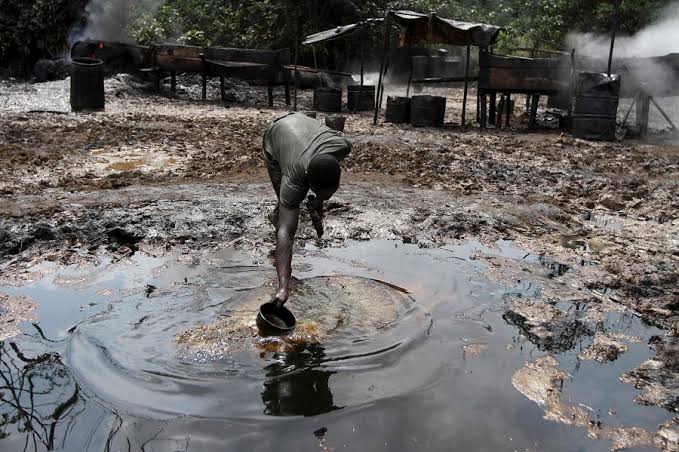The Ijàw Diaspora Congress (IDC) is requesting that the Federal Ministry of Humanitarian Affairs and Disaster Management intervene in the current oil spill at Oil Mining Lease (OML) 29 in Nembe, Bayelsa.
The diaspora group, which has its headquarters in Newark, New Jersey, US, requested intervention in a letter dated December 17 and made available to the News Agency of Nigeria (NAN) in Yenagoa on Saturday.
In a letter signed by Prof. Monday Gold, President, and Dr. Antonia Garner, Vice President, Europe and Director of Humanitarian and Disaster Affairs, IDC stated that the leak, which was discovered on November 1st, would continue unabated until December 8, 2021.
Aiteo Eastern Exploration and Production Company operates OML29, with the Federal Government owning 51% of the stock.
The spill, according to the IDC, has far-reaching ecological consequences for the economic health and well-being of the impacted areas and people, spanning from Nembe and its connecting creeks down to the Atlantic Ocean.
While the Bayelsa government and community blamed the spill on equipment failure, the group said it was waiting for the National Oil Spill Detection and Response Agency’s official position (NOSDRA).
The agency is tasked with detecting, monitoring, and managing oil spills in Nigeria.
“We are awaiting the results of an evidence-based investigation to determine the cause and volume of the spill.”
“The Ijaw Diaspora Council’s Technical Advisor, Rick Steiner, estimates that the blowout would have released a total of 532,000 barrels to 1,064,000 barrels of oil equivalent in the 38 days that the leak lasted with 1-2 cubic feet of discharge per second.”
According to its Technical Advisor, Prof. Rick Steiner, the group demanded that the failed wellhead be preserved for independent engineering forensic analysis to determine the cause of the failure.
The IDC insisted that the wellhead be preserved as evidence in accordance with criminal evidentiary procedures in order to prevent any further alteration or adulteration.
In addition, the group wanted an engineering analysis of the cause of the equipment failure.
The IDC recommended that the investigation be conducted by an independent organization, such as the Bureau of Safety and Environmental Enforcement (BSEE) or Det Norsk Veritas (DNV) in Norway.
The group also wants an update on the Federal Government’s efforts to provide humanitarian aid to the affected people and areas.
IDC also urged the Federal Government to declare the spillage in Ijawland a humanitarian disaster and take appropriate action.
The group claims that Aiteo’s slow response time exacerbated the “catastrophic” damage caused by the failed oil and gas well head to the physical, economic, psychological, and general well-being of the affected communities.
“The victims were thrust into an immediate humanitarian crisis of epic proportions due to the sluggish response pace.”
Failure to treat this as a national emergency with global ramifications would be equivalent to committing crimes against humanity under the Human Rights Act and other applicable laws and treaties, according to the group.
The IDC called for the immediate provision of alternative sources of income, as a result of the loss of livelihood sources in over 40 communities.
“The immediate provision of alternative sources of income should span the projected amount of time, potentially decades,” the group said, “that it would take for all affected communities to economically recover from the extremely calamitous disaster that has befallen Nigeria.”
